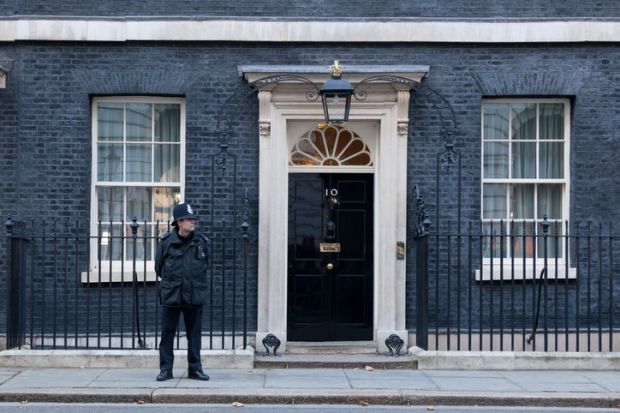Sir Patrick Vallance is to step down as the UK government’s chief scientific adviser, after playing a key role in steering the country’s response to the coronavirus pandemic.
He will leave at the end of his five-year term in April 2023, and a recruitment process to find his successor will be launched shortly.
Sir Patrick said that he was “fully committed” to the role until his departure.
“Science and engineering remain vital for the future prosperity of the UK, and high-quality evidence and science advice should be at the heart of all government decision-making,” he said.
“Appointing the [chief scientific adviser] for fixed periods is an important way to ensure independence and my five-year term has been both challenging and immensely rewarding.”
At the height of the Covid-19 pandemic, Sir Patrick became a household name thanks to regular appearances at televised Downing Street press conferences.
He later said that it was “disappointing” that Covid restrictions were not followed in No 10.
Sir Patrick’s term also coincided with the announcement of government plans for significant increases in public investment in research and development.
Sir Patrick is also national technology adviser, head of the Government Science and Engineering Profession, and co-chair of the Council for Science and Technology, which advises the prime minister.
Prior to taking on his latest post, he was president of research and development at GlaxoSmithKline. Before going into industry, he was professor of medicine and head of the Division of Medicine at UCL, with his expertise lying in diseases of blood vessels and endothelial biology.
Dame Nancy Rothwell, president of the University of Manchester, said that Sir Patrick had been a “remarkable” chief scientific adviser.
“He has a vast grasp of science and innovation, a unique ability to see through complex problems and find solutions and an impressive way of taking people with him – including the science community, industry and politicians.
“His job description didn’t include Covid but he managed this with his usual in-depth knowledge, insights and real political awareness. I know it took a huge amount of his time and energy, often at the cost of his own personal life.
“Patrick was also instrumental in securing the very big uplift in R&D spending that we saw in the last Comprehensive Spending Review.
“Patrick is to me the ‘blueprint’ of a great chief scientific adviser. We all owe him a real [debt of] gratitude.”
Prime minister Boris Johnson said that Sir Patrick had “played an instrumental role in expanding and accelerating the science super prowess of this country”.
“Sir Patrick may not have bargained for becoming a household name when he signed up for the job, but I am immensely grateful for his advice and expertise throughout the pandemic and beyond. It’s our scientists and clinicians, led by Sir Patrick, Sir Chris Whitty, and their team, that oversaw the largest vaccine rollout in British history together with my government,” Mr Johnson said.
“He will be missed by all when he leaves next year, and I wish him the very best in all future endeavours.”
Register to continue
Why register?
- Registration is free and only takes a moment
- Once registered, you can read 3 articles a month
- Sign up for our newsletter
Subscribe
Or subscribe for unlimited access to:
- Unlimited access to news, views, insights & reviews
- Digital editions
- Digital access to THE’s university and college rankings analysis
Already registered or a current subscriber? Login




